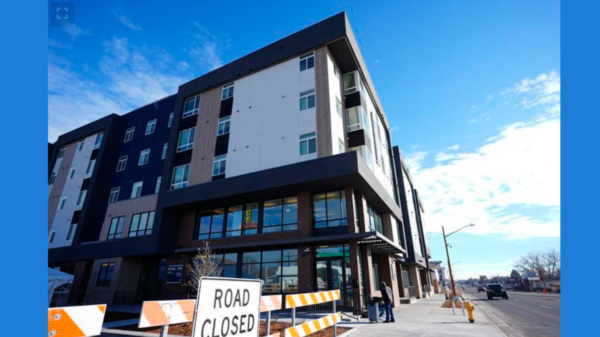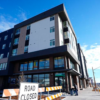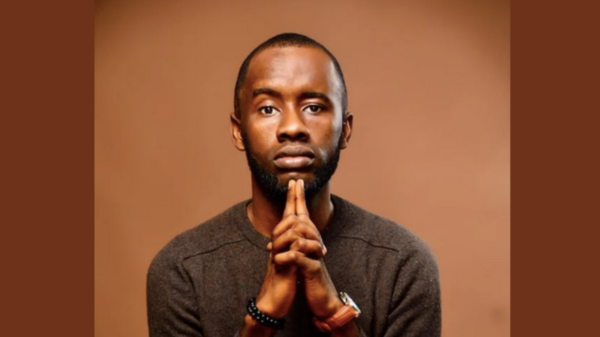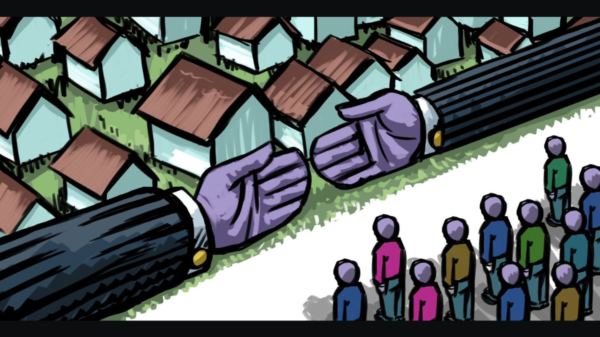The Dallas Morning News asked candidates their ideas for encouraging more homeownership in the city, where the city needed to pour its resources and what influenced their policies.
By Devyani Chhetri
City Reporter

Apartments versus single-family neighborhoods. Gentrification. Industrial warehouses next to homes. Revitalization. The Dallas City Council elected in May will have its hands full with an issue that affects every single resident it represents: housing.
In the last two years, city officials have been embroiled in contentious debates over the rules and regulations under their control.
Fears of unchecked changes to a neighborhood’s layout dominated the creation of the city’s updated land-use visioning document, ForwardDallas. The notion of adding density in and around neighborhoods triggered alarm bells. A zoning case in North Dallas — the redevelopment of Pepper Square, an aging retail strip mall, into a mixed-use luxury apartment complex — sparked a fight about neighborhood rights.
At the same time, Dallas is not building enough affordable homes to match the number of jobs mushrooming in North Texas, indicating an existential crisis for a city that’s retaining fewer people in its tax base compared to its suburban peers.
As the May election nears, The Dallas Morning News reached out to candidates about their priorities and thoughts on shaping policies. Twenty-three candidates responded, 27 didn’t.
Their visions can be found in a searchable database. Based on their responses, here are the major themes that could influence the direction of the next council.
The majority of the residents in Dallas are renters, and homeownership can offer neighborhood stability and increase generational wealth. But less than a quarter of the city’s renter households can afford the median-priced home. What are some ways you plan to address this issue?
City Council candidates approach housing topics.
Katrina Whatley
Measures such as inclusionary zoning, acquisition and rehabilitation programs, land trusts, flexible zoning overlays, middle-income housing initiatives, and the repurposing of existing inventory should all be on the table if we intend to pursue equitable growth and diversity.
Chad West (I)
Dallas needs to do more to create for-sale housing units, and the biggest tool we have is to create standards for approving zoning changes in which zoning changes are given priority if they are looking to build for sale at prices that match what is common across the surrounding areas.
Jesse Moreno (I)
I am currently working on a public private partnership to implement a land bank program what will make it more affordable and realistic to owning a home.
Sukhbir Kaur
I am & shall continue to work on bringing accountability & transparency to the city hall expenditures.Including office of homeless solutions.
Zarin Gracey (I)
I plan to continue implementing mixed-income housing developments within District 3, integrating market-rate multi-family housing, townhomes, cottage homes, single-family homes for rent, and affordable options within the same community.
Kebran W Alexander
We must entice developers to offer more affordable housing options, we have to preserve housing stock that we currently have and support SB208 which would provide a revolving loan fund for developers.
Maxie Johnson
People exist at all stages on that pipeline; however, Dallas should be a city where if you want to rent, you can rent without being preyed upon, and if you want to buy, there are resources that make that goal attainable.
David Blewett
The best thing government can do to address this is to continue to improve the permiting office so we can increase the supply of housing.
Laura Cadena
We should look at vacant city property to help increase housing stock sold to those of lower median incomes as a mixed income neighborhood.
Nicolas “Nico” Quintanilla
I would create a Loan program that residents can go to and apply for a loan to purchase their home.. I would waive interest rates and people would just have to pay back the loan with no interest rates.
Linus Spiller
I want to call for a huge reduction in the number of building permits issued for multifamily units versus and advocate for more construction permits for single-family housing units.
Adam Bazaldua (I)
Increase a balanced mix of housing options that attract new residents to our neighborhoods, while ensuring our current residents can peacefully and financially age in place.
Cydney Walker
Promoting the development of more town homes and condominiums can effectively address housing affordability by providing smaller, more affordable units that appeal to a wider range of buyers.
Paula C. Blackmon (I)
I support policies that increase affordable homeownership programs, such as down payment assistance, expanding mixed-income developments, and utilizing city-owned land for housing projects that prioritize affordability.
Sirrano Keith Baldeo
Because of pending litigation, I am unable to respond at this time, you are not being ignored. Thank you for your consideration.
Kathy Stewart
I propose we find opportunities to develop townhomes and zero-lot line homes, which generally require smaller lots, have a more compact footprint, and are often more affordable.
LD Pullen
I propose expanding Down Payment Assistance Programs: Enhancing initiatives that provide financial support for down payments can make homeownership more accessible to renters.
Kendal Richardson
Make the residents of Dallas aware of Kingdom Legacy who is doing the work to help guide people to generational wealth. Kingdom Legacy is a real estate brokerage and community development company.
Bill Roth
I’d expand public-private partnerships like TREC’s Dallas Catalyst Project, which has successfully built affordable housing in underserved areas, by increasing city grants and incentives to developers who prioritize low and moderate income homebuyers.
Jose Cavazos
The City/County of Dallas should lower property taxes and not over assess property values to encourage more home ownership.
Diane Benjamin
City council must work closely with the city manager to provide input on expected, measurable results.
Gay Donnell Willis (I)
I’d like to see the city identify parcels that would be appropriate for the Community Land Trust initiative that TREC (The Real Estate Council) is launching.
Adding cheaper homes to the market
For many in the city, owning or renting a home takes up more than 30% of a household’s income. Several candidates pointed out that Dallas needs a variety of houses in a community to match the needs of different generations. Through the course of their lives, people shuffle between homes with a smaller footprint to a house with a yard to grow their family and back to downsizing when their children have left the nest.
As Dallas Housing Coalition Director Bryan Tony puts it, housing in the city is like musical chairs. There need to be enough homes for every generation. The fewer the chairs, the quicker people lose options.
Several candidates appeared to agree.
“Our most fundamental guiding principle must be to increase a balanced mix of housing options that attract new residents to our neighborhoods while ensuring our current residents can peacefully and financially age in place,” District 7 incumbent Adam Bazaldua said.
What could that look like?
Cydney Walker, a challenger from District 7, is urging smaller, more affordable homes with a variety of options. Triplexes and duplexes can encourage owners to rent out units to offset mortgage costs, Walker said. District 7 candidates O’Neil Hesson, Jose Rivas, Lamar Jefferson and Marvin Crenshaw did not respond to questions.
Up north near Lake Highlands, incumbent Kathy Stewart is running for her second term. She suggested building homes and townhomes close to the property line on smaller lots. “District 10 has several of these developments that are very successful and serve as a great way to enter the housing market,” she said.
Her challenger, Sirrano Keith Baldeo, declined to participate, citing pending litigation. Baldeo sued Stewart because he believes she doesn’t live in her registered home, but he would not produce evidence. Stewart’s name was listed at her home address, according to public records, and a judge recently dismissed the lawsuit.
In District 6, which covers much of the western half of the city, candidate responses diverged.
Laura Cadena also mentioned the possibility of the city allowing accessory dwelling units, such as casitas or “granny cottages” that are attached to homes as a way to provide a cheaper rental option. Cadena, who was the chief of staff for outgoing council member Omar Narvaez, identified areas in West Dallas, the upper Stemmons Corridor, Koreatown and the Asian Trade District that can have communities that include homes for residents from all income brackets.
This year, state lawmakers have focused on addressing housing needs. Bills that could ease the process of building smaller attached residences in the backyards of single-family homes and reduce lot size requirements for new detached homes are currently moving through the Texas Legislature. An attempt last session to remove restrictions on accessory dwelling units was approved in the Senate but was unable to gain momentum in the House.
What is the city government’s role in addressing Dallas’ housing needs, and where should the city focus its resources?
City Council candidates approach housing topics.
Katrina Whatley
The key role of the City of Dallas with regard to housing needs is as the regulatory facilitator that ensures that residents have access to safe, stable and affordable housing.
Chad West (I)
I am the only council member in over a decade to oversee the creation of a new conservation district in my district, and I’m working with neighbors to create more.
Jesse Moreno (I)
The City should not be in the business of developing the construction of homes, but we can shape the policy and planning to encourage affordable housing.
Sukhbir Kaur
Bring accountability and transparency to all city hall expenditures. Focus on public safety and health. And more businesses move in Dallas city.
Zarin Gracey (I)
Creating and preserving affordable housing through mixed-income development requirements in new projects, utilizing public land for affordable housing, and maintaining existing affordable units.
Kebran W Alexander
The City should consider allowing developers to build housing where they currently can build only commercial property.
Maxie Johnson
City government can and should focus its resources on informing the community about resources to stay in or buy a home, providing assistance with rent or property taxes through partnerships.
David Blewett
improving the permitting office is the best role for local government.
Laura Cadena
The city can look at resources to help keep residents in their home while also looking at other housing options such as ADU’s, duplex and tri/quadplex.
Nicolas “Nico” Quintanilla
The city plays a major role in addressing housing from homelessness to helping people buy their home. We need to focus in the community, creating a solution.
Linus Spiller
The City of Dallas cannot solely fix the issue of affordable housing, but it can be a facilitator of it and lay the foundation upon which we can see the construction of needed housing units and/or work with private sector units.
Cydney Walker
The city must prioritize the implementation of diverse housing plans that promote mixed-income rental units throughout various neighborhoods, rather than concentrating affordable options solely in the southern region.
Paula C. Blackmon (I)
The city plays a critical role in setting housing policies that prioritize affordability while fostering economic development. We need to streamline permitting processes to reduce costs for developers.
Sirrano Keith Baldeo
Because of pending litigation, I am unable to respond at this time, you are not being ignored. Thank you for your consideration.
Kathy Stewart
The City is better positioned to support affordable housing by incentivizing the private sector, which it does through various funding programs managed by the Housing Department.
LD Pullen
The city government should serve as a facilitator and regulator to ensure that housing policies promote affordability and inclusivity.
Kendal Richardson
The city should focus its resources on equity strategy target areas, citywide production and preservation, infrastructure improvements, and strengthening collaboration and engagement.
Bill Roth
The city government’s role in addressing our housing needs is to foster an environment where the private sector can effectively meet demand, rather than relying on government-led development.
Jose Cavazos
The City of Dallas should partner with developers who are committed to provide quality housing to enable vibrant communities and to provide a variety of housing and retail.
Diane Benjamin
The city has a responsibility to protect existing neighborhoods. I am a strong supporter of maintaining residential zoning. The city needs to consider existing neighborhoods if it looks to make zoning changes that impact housing.
Gay Donnell Willis (I)
The city has created a tool box of incentives to spur housing preservation and development, but it must be monitored to be sure it’s useful in the marketplace.
Single family vs. multifamily
The next City Council will have to navigate an ever-widening chasm between renters and homeowners, as well as those who endorse multifamily housing in and around single-family neighborhoods.
Property tax revenue also has a role. Single-family parcels make up 35% of the city’s land use but only 4% of the city’s tax base. In comparison, mixed-use parcels make up 0.2% of the city’s tax base and contribute 40%.
Still, Linus Spiller-Craft, another District 6 candidate, said he would call for a reduction in the number of building permits issued for multifamily units and advocate for more construction permits for single-family housing units. He argued the high property taxes of a multifamily complex are often passed onto renters and single-family units are a far more reliable money generator due to the long-term commitment homeowners make to a residential area.
“Dallas has enough multifamily units in the market, and the pendulum needs to shift to more single-family units,” Spiller-Craft said. His competitors — Monica Alonzo, Gabriel Kissinger, Tony Carrillo, Machelle Wells and write-in candidate Quinchee Morgan — did not respond to questions.

Over the past few years, conversations surrounding housing types have grown even more volatile, and a majority stem from the concern that the introduction of a triplex or a quadruplex could change the fabric of existing single-family home neighborhoods that cover the bulk of Dallas’ topography.
District 4 contender Kebran Alexander also supports accessory dwelling units but feels single-family neighborhoods are optimal for much of Dallas because they provide “stability for the community.”
And District 13 candidate Diane Benjamin opposed zoning changes that allow multifamily units in neighborhoods where single-family residences were the norm. Benjamin, a realtor, is challenging council member Gay Donnell Willis in northwest Dallas.
What is an issue that has influenced your approach to housing?
City Council candidates approach housing topics.
Katrina Whatley
After a five-story apartment building was erected just three feet from the outer walls of my longtime home, I began the journey of educating myself about how decisions about zoning and development are really made in Dallas and the variety of factors we don’t always consider.
Chad West (I)
I hear stories from constituents – especially in the 75211 zip code of my district – about people selling their family homes for a 4X multiple of what they purchased it for in the 1990s or 2000s.
Sirrano Keith Baldeo
Because of pending litigation, I am unable to respond at this time, you are not being ignored. Thank you for your consideration.
Kathy Stewart
Addressing the needs of people in my district who are homeless has had an impact on me. I’ve come to recognize that our homeless population is made up of at least two distinct groups of people.
LD Pullen
My approach to housing has been shaped by observing the challenges faced by low-income families in securing stable, affordable housing.
Protecting existing homes
The majority of the residents in Dallas are renters, and less than a quarter can afford the median-priced home. Large houses exceeding 3,000 square feet continue to be built among rows of smaller, older homes, increasing housing costs in their wake and which are less affordable due to their size.
Several candidates want to see more mixed-income housing to ensure people from different socio-economic backgrounds can enjoy the same quality of life.
“Our existing homes should be viewed as assets rather than merely as sources of raw land for development,” said District 1 candidate Katrina Whatley, who suggested zoning overlays and home-repair programs as well as focusing city efforts on improving infrastructure in underutilized areas.
Council member Chad West, District 1 incumbent, said the best way to preserve homes is by letting neighborhoods make use of zoning tools and protect vulnerable areas from the “tide of overdevelopment and displacement that would inevitably occur with no active planning.”
West has placed his bets on the West Oak Cliff Area Plan, a collection of zoning cases that could transform Oak Cliff. In the Jimtown neighborhood, the plan helped allow accessory dwelling units in the neighborhood by right “to help existing neighbors achieve goals around multigenerational housing or even create long-term rentals on their properties,” the District 1 incumbent said.

Balancing fears of gentrification with the need for growth is a challenge candidates will have to navigate. The pressures have contributed to a culture of distrust between city staff, neighborhoods and the development community.
District 4 contender Maxie Johnson said the role of a councilperson would be that of a convener, “bringing community and developers together to regularly discuss the needs and preferences of the community.”
“This makes the process of creating more units more efficient and less contentious,” he said.
Some candidates focused on property tax relief as a tool to keep people in their homes. District 12 challenger Jose Cavazos, like Benjamin in District 13, said property tax payments keep housing an unattainable dream. Cavazos’ opponents — incumbent council member Cara Mendelsohn and Marc Rossouw — did not respond to questions about housing.
In District 3, incumbent Zarin Gracey endorsed a plan to possibly lower the tax appraisal cap for older residents who are traditionally reliant on a fixed income.
Gracey and other candidates from southern Dallas are also advocating for broadening tenant protections in the city’s frame of thinking. Gracey, who is facing two challengers, said he supports creating “a comprehensive Renters’ Bill of Rights with stronger tenant protections against unfair evictions and unreasonable rent increases.”
Neither of Gracey’s challengers — John Sims and Jesseca Lightbourne — responded to questions.
Ways the city can encourage more housing
Alongside others, District 9 council member Paula Blackmon, Willis and former council member and District 6 candidate David Blewett, said the city needs to continue improving its permitting processes to spur affordable, workforce housing. Blackmon’s challengers in District 9 — Ernest Banda and Joseph Sarno — did not respond to requests for comment.
“The laws of supply and demand always win. We must increase supply to affect pricing,” Blewett said.
Some, including District 2 council member Jesse Moreno and District 11 candidate Bill Roth, support using public-private partnerships with entities such as The Real Estate Council to develop pipelines for homeownership.
Moreno’s challenger, Sukhbir Kaur, wants the city to support the free market’s ability to fill the city’s housing needs by focusing on code enforcement, public safety and giving tax breaks “to all and not just 1-3 developers.”
Roth said he wants to see more of what The Real Estate Council is doing in South Dallas through the Dallas Catalyst Project. Revitalizing the areas around the Forest Theatre, in the midst of its own reincarnation, and providing tools to residents in Mill City are other ways these partnerships have played out, he said.
Roth’s opponents, Jeff Kitner and Mona Elshenawy, did not respond.
Meanwhile, Willis mentioned an upcoming project called the “community land trust initiative” that The Real Estate Council plans to unveil in a briefing later this year. The initiative is based on the idea that a nonprofit servicing a vulnerable, gentrifying area can buy a large portfolio of land parcels and help cap property taxes.
A low-income homebuyer can build equity by paying the mortgage for the home. If they choose to sell, the homebuyer can recoup all the money they’ve invested, and the land trust will maintain a lower price point for the home to pass on to another homebuyer.
“The city has created a tool box of incentives to spur housing preservation and development, but it must be monitored to be sure it’s useful in the marketplace,” she said.
One thing is clear: Dallas’ housing issues won’t be solved overnight, and the answers aren’t simple. As policymakers, the new City Council will have direct influence on the next stage of development in one of the country’s largest cities.
Before joining the Dallas Morning News, Devyani Chhetri covered South Carolina politics and presidential primaries at the Greenville News. She went to Boston University for graduate school.
This story, originally published in The Dallas Morning News, is reprinted as part of a collaborative partnership between The Dallas Morning News and Texas Metro News. The partnership seeks to boost coverage of Dallas’ communities of color, particularly in southern Dallas.







You must be logged in to post a comment Login